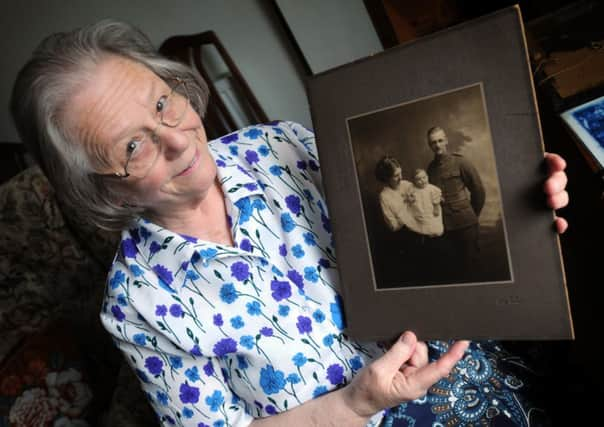Bible solace for WW1 family


The bibles were an integral part of every British soldier’s kit - including Rifleman Albert Penn, of Hasland, Chesterfield, who was killed on October 30, 1917, at Passchendale.
During the 100th anniversary year since the start of the war in August 1914, Albert Penn’s granddaughter Rev Cynthia Hardiman and Matthew Van Duyvenbode, of the Bible Society, have been reflecting on his heroism and the importance of bibles.
Advertisement
Hide AdAdvertisement
Hide AdMr Van Duyvenbode said: “The Bible was a huge influence on working class culture. From the public school to the Sunday school, from art and music to political debate, the Bible was in the blood of British people.”
The nine million bibles distributed during the four years of the war were publicised in 80 languages. On average more than 7,000 volumes were sent out every working day.
Albert and wife Florence were expecting their first child after they had met at the Wesleyan Methodist Chapel in the village. He volunteered but was refused because Florence was pregnant but he enlisted eight months later after his daughter Mary Estelle’s birth.
A survivor told how Albert led his troop at Passchendaele singing “Rejoice the Lord King” but he died days later after his South Shields, Tyne and Wear regiment went over the top.
Advertisement
Hide AdAdvertisement
Hide AdHe was 28 years old. His body was never found. His name is listed among the missing soldiers on the Tynecot Memorial, near Ypres.
Despite the tragedy, his granddaughter Rev Cynthia Hardiman says this gave Florence solace. Dr Michael Snape, Reader in Religion, War and Society at the Birmingham University, said soldiers were happy to have something sacred with them and it connected soldiers with loved ones.
He added: “There are poignant stories from the Battle of the Somme of bodies being recovered from shell holes who died with a New Testament in their hands.”